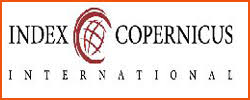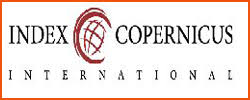Editorial Policies
- Focus and Scope
- Section Policies
- Peer Review Process
- Publication Frequency
- Open Access Policy
- Archiving
- Publication Ethics
Focus and Scope
Jurnal AGRISEP: Kajian Masalah Sosial Ekonomi Pertanian dan Agribisnis is published by Badan Penerbitan Fakultas Pertanian (BPFP) Faculty of Agriculture, University of Bengkulu and distributed twice a year in March and September. Jurnal AGRISEP is dedicated to researchers and academics intent on publishing research, scientific thinking, and other original scientific ideas.
Jurnal AGRISEP: Kajian Masalah Sosial Ekonomi Pertanian dan Agribisnis scientific periodical publication on Agribusiness and Agricultural Socio-Economics issue as a media for information dissemination of research result for lecturer, researcher and practitioner.
The article published in the Jurnal AGRISEP: Kajian Masalah Sosial Ekonomi Pertanian dan Agribisnis is the author's original work with a broad spectrum of topics. Detailed scopes of articles accepted for submission to agricultural socio-Economics and Agribusiness study involve two approaches, macro and micro approach.
(1) The Macro approach of agricultural socio-economic as a system which comprehensive and integrated from subsystems up-stream, subsystems on-farm, subsystems down-stream, subsystems support and the impact of their interrelationships with government policy, international economics, agricultural marketing, natural resources, agricultural extension and communication, agricultural sociology, farmer institutions, and community empowerment;
(2) The Micro approach includes the study in the development of agribusiness (finance, farm management, functional and technical aspects) and agricultural local institutional.
Peer Review Process
The research article submitted to this online journal will be peer-reviewed at least by 2 (two) reviewers. The final decision of the acceptance or rejection of the article is made by Editor-in-Chief based on the comments given by the reviewers. Screening of plagiarism will be done by utilizing the iThenticate software program. The accepted research articles will be available online following the journal peer-reviewing process.
Type of peer review
Submitted manuscripts will generally be reviewed by two experts who will be asked to evaluate whether the manuscript is scientifically sound and coherent, whether it duplicates the already published works, and whether or not the manuscript is sufficiently clear for publication. The method is a double-blind review
Review reports
Reviewers are asked to evaluate whether the manuscript:
- Is original by stating the objectives and gap clearly
- Is methodologically sound
- Follows appropriate ethical guidelines
- Has results/findings which are clearly presented and support the conclusions
- Correctly references previous relevant work
- Reviewers are not expected to correct or copyedit manuscripts. Language correction is not part of the peer-review process.
Decision
Reviewers advise the editor, who is responsible for the final decision to accept or reject the article. The Editors will reach a decision based on these reports and, where necessary, they will consult with members of the Editorial Board. The editor’s decision is final.
Becoming a Reviewer
If you are not currently a reviewer for Journal AGRISEP but would like to be added to the list of reviewers, please contact us. The benefits of reviewing for Journal AGRISEP include the opportunity to see and evaluate the latest work in the related research area at an early stage, and to be acknowledged in our list of reviewers. You may also be able to cite your work for Journal AGRISEP as part of your professional development requirements. Journal AGRISEP's reviewers are volunteers who contribute their expertise to the science, thus no financial payments are made.
Publication Frequency
March & September
Open Access Policy

This journal provides immediate open access to its content on the principle that making research freely available to the public supports a greater global exchange of knowledge.
Archiving
This journal utilizes the Indonesia Crossref, One Search (IOS), Bielefeld Academic Search Enggine (BASE), and Portal Garuda system to create a distributed archiving system among participating libraries and permits those libraries to create permanent archives of the journal for purposes of preservation and restoration.
Publication Ethics
Jurnal AGRISEP : Kajian Masalah Sosial Ekonomi Pertanian dan Agribisnis (ISSN 1412 - 8837 E-ISSN 2579-9959) is a peer-reviewed journal published Badan Penerbitan Fakultas Pertanian (BPFP) Faculty of Agriculture, University of Bengkulu. This statement clarifies the ethical behaviour of all parties involved in the act of posting an article in this journal, including the author, the chief editor, the Editorial Board, the peer-reviewed and the publisher. This statement is based on COPE’s Best Practice Guidelines for Journal Editors.
Ethical Guideline for Journal Publication
The publication of an article in a peer-reviewed Jurnal AGRISEP : Kajian Masalah Sosial Ekonomi Pertanian dan Agribisnis is an essential building block in the development of a coherent and respected network of knowledge. It is a direct reflection of the quality of the work of the authors and the institutions that support them. Peer-reviewed articles support and embody the scientific method. It is therefore essential to agree upon standards of expected ethical behaviour for all parties involved in the act of publishing: the author, the journal editor, the peer reviewer, the publisher and the society.
Badan Penerbitan Fakultas Pertanian (BPFP) Faculty of Agriculture, University of Bengkulu as publisher of Jurnal AGRISEP : Kajian Masalah Sosial Ekonomi Pertanian dan Agribisnis takes its duties of guardianship over all stages of publishing exceptionally seriously, and we recognize our ethical and other responsibilities. We are committed to ensuring that advertising, reprint or additional commercial revenue has no impact or influence on editorial decisions. Besides, the Faculty of Agriculture, University of Bengkulu, and the Editorial Board will assist in communications with other journals and publishers where this is useful and necessary.
Publication decisions
The editor of the Jurnal AGRISEP : Kajian Masalah Sosial Ekonomi Pertanian dan Agribisnis is responsible for deciding which of the articles submitted to the journal should publish. The validation of the work in question and its importance to researchers and readers must always drive such decisions. The editors may be guided by the policies of the journal's editorial board and constrained by such legal requirements as shall then be in force regarding libel, copyright infringement and plagiarism. The editors may confer with other editors or reviewers in making this decision.
Fair play
An editor at any time evaluates manuscripts for their intellectual content without regard to race, gender, sexual orientation, religious belief, ethnic origin, citizenship, or political philosophy of the authors.
Confidentiality
The editor and any editorial staff must not disclose any information about a submitted manuscript to anyone other than the corresponding author, reviewers, potential reviewers, other editorial advisers, and the publisher, as appropriate.
Disclosure and conflicts of interest
Unpublished materials disclosed in a submitted manuscript must not use in an editor's research without the express written consent of the author.
Duties of Reviewers
Contribution to Editorial Decisions
Peer review assists the editor in making editorial decisions and through the editorial communications with the author may also help the author in improving the paper.
Promptness
Any selected referee who feels unqualified to review the research reported in a manuscript or knows that its prompt review will be impossible should notify the editor and excuse himself from the review process.
Confidentiality
Any manuscripts received for review must treat as confidential documents. They must not be shown to or discussed with others except as authorized by the editor.
Standards of Objectivity
Reviews should conduct objectively. Personal criticism of the author is inappropriate. Referees should express their views clearly with supporting arguments.
Acknowledgement of Sources
Reviewers should identify relevant published work that has not been cited by the authors. Any statement that an observation, derivation, or argument reported should accompany by the appropriate citation. A reviewer should also call to the editor's attention any substantial similarity or overlap between the manuscript under consideration and any other published paper of which they have personal knowledge.
Disclosure and Conflict of Interest
Privileged information or ideas obtained through peer review must be kept confidential and not used for personal advantage. Reviewers should not consider manuscripts in which they have conflicts of interest resulting from competitive, collaborative, or other relationships or connections with any of the authors, companies, or institutions connected to the papers.
Duties of Authors
Reporting standards
Authors of reports of original research should present an accurate account of the work performed as well as an objective discussion of its significance. Underlying data should be represented accurately in the paper. A paper should contain sufficient detail and references to permit others to replicate the work. Fraudulent or knowingly inaccurate statements constitute unethical behaviour and are unacceptable.
Data Access and Retention
Authors are asked to provide the raw data in connection with a paper for editorial review, and should be prepared to provide public access to such data (consistent with the ALPSP-STM Statement on Data and Databases), if practicable, and should in any event be prepared to retain such data for a reasonable time after publication.
Originality and Plagiarism
The authors should ensure that they have written entirely original actions and if the authors have used the works, or words of others that this has appropriately cited or quoted.
Multiple, Redundant or Concurrent Publication
An author should not, in general, publish manuscripts describing essentially the same research in more than one journal or primary publication. Submitting the same paper concurrently to more than one journal constitutes unethical publishing behavior and is unacceptable.
Acknowledgement of Sources
Proper acknowledgment of the work of others must always be given. Authors should cite publications that have been influential in determining the nature of the reported work.
Authorship of the Paper
Authorship should be limited to those who have made a significant contribution to the conception, design, execution, or interpretation of the reported study. All those who have made significant contributions should be listed as co-authors. Where there are others who have participated in certain substantive aspects of the research project, they should be acknowledged or listed as contributors. The corresponding author should ensure that all appropriate co-authors and no inappropriate co-authors are included on the paper and that all co-authors have seen and approved the final version of the article and have agreed to its submission for publication.
Fundamental errors in published works
When an author discovers a significant error or inaccuracy in his/her own published work, it is the author’s obligation to promptly notify the journal editor or publisher and cooperate with the editor to retract or correct the paper.



_1.png)










